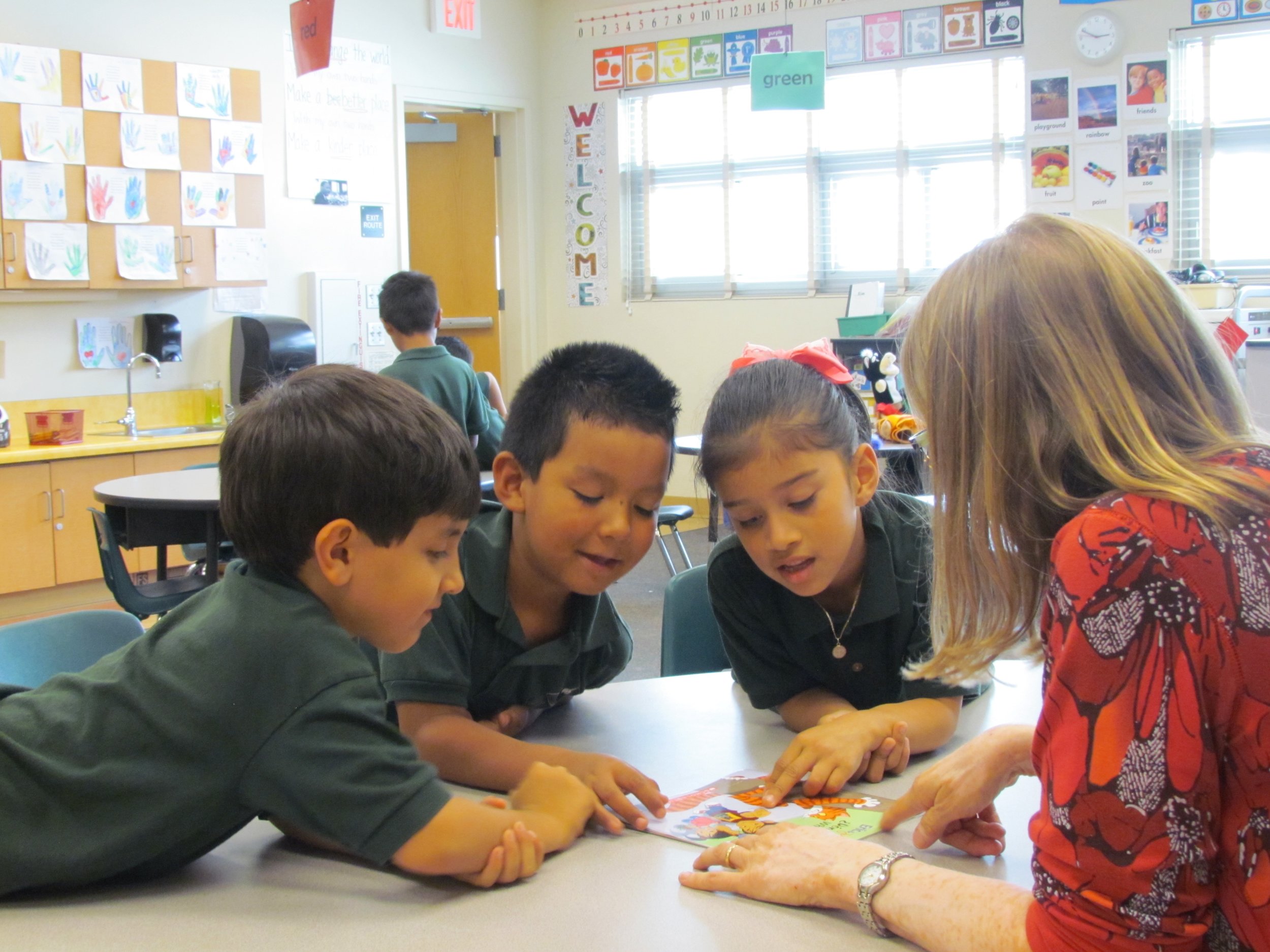By Jennifer Van Pelt
A picture of Read Aloud volunteer, Barb Takahashi, talking with Golden Hill students in her small group session.
Words Alive runs multiple literacy programs that focus on teaching strong literacy skills and a commitment to reading to children, teens, and families. One of our most popular programs is the Read Aloud Program, which currently serves over 4,300 Southern California students that are between Preschool and 3rd grade.
We offer this program in a “small group format” to a few of our school sites, in which our trained volunteers visit the classroom for 90 minutes each week to read to the group as a whole, then split the class into groups of 3-5 students to discuss the book and do small group activities. A study from aecf.org showed that students who are unable to read proficiently by the time they leave 3rd grade are four times more likely to not receive a high school diploma. Because of their young age and the relationship between literacy and success in education, we want to provide the most benefit we can in the 90 minutes a week that our volunteers visit the classrooms by fully engaging the students. We vet and train our volunteers to ensure they understand the discussion material and have the appropriate props, stories, and photos to help bring the books to life for the students.
These volunteers are able to bring more materials to the classroom so the group discussions are able to make the connection between the book and their everyday lives. Another benefit of the program, as noticed by our volunteers, is that all children are given the opportunity to participate. In a group of 30 or more students, children don’t always have the support to get individualized attention and encouragement to speak up like they do in smaller groups. They are also given the opportunity to use the new vocabulary and read aloud, so they can have another method of internalizing the new information.
In order to measure the effectiveness of the program, Words Alive partnered with the University of San Diego’s Caster Family Center for Nonprofit and Philanthropic Research and surveyed the teachers and volunteers involved in this small group format of the Read Aloud Program. When asking them about the effectiveness of the small groups, 9 out of 10 teachers agreed that it encouraged more individual participation, helped students understand the story, and resulted in deeper discussions. Teachers also positively rated their student's reading motivation as a 4.1 on a 5 point scale after they participated in our Read Aloud Program formatted with small groups. Reading motivation is a key literacy indicator because it shows the self-confidence and desire to continue reading, which leads to more learning and practice.
In these underserved schools particularly, there is often times no guarantee that students are provided with the necessary resources and support staff to receive the individualized attention that our Read Aloud Program provides. That is why teachers and volunteers believe in the work that we do and recommend the program to other schools.
If you would like to become a volunteer in our Read Aloud Program, or any other positions at Words Alive, visit our website here to learn more.

